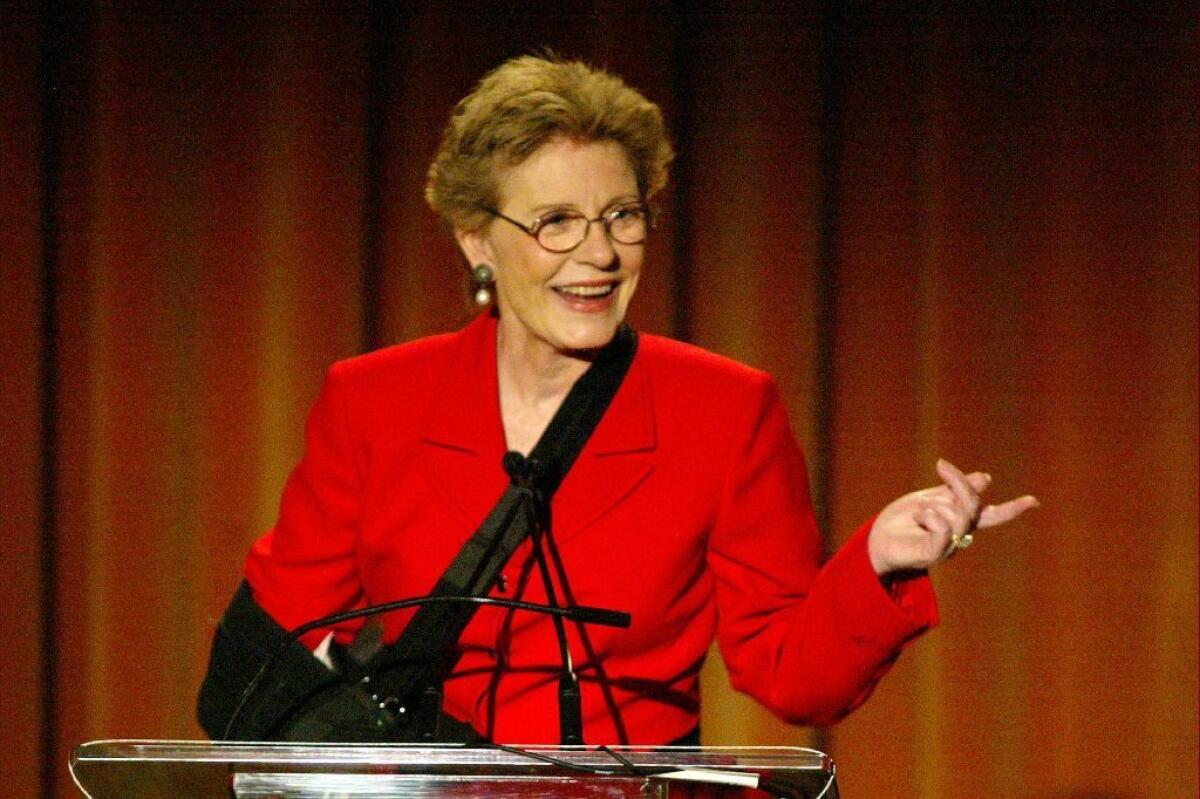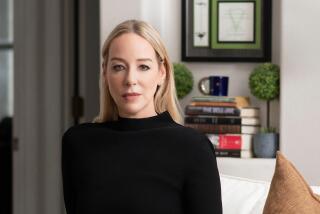How Patty Duke broke a Hollywood taboo and became a mental health pioneer

Patty Duke speaking about mental health issues at a 2003 event in Beverly Hills.
- Share via
Long before celebrities shared their private struggles on talk-show couches and social media feeds, actress Patty Duke broke a Hollywood taboo by speaking publicly about her mental health struggles.
Duke, who died Tuesday morning at age 69, was diagnosed with manic depression (now called bipolar disorder) in 1982. Known at the time as the goody-two-shoes child star of “The Miracle Worker” (for which she won a best supporting actress Oscar at 16) and “The Patty Duke Show,” Duke revealed revealed a much darker reality in her 1987 memoir, “Call Me Anna,” written with L.A. Times film critic Kenneth Turan. In the book, she graphically detailed her turbulent life, drug and alcohol abuse and childhood mistreatment at the hands of cruel managers.
In talking candidly about her mental illness, Duke took on the stigma long attached to the issue. In the years since Duke’s disclosure, actresses such as Catherine Zeta Jones, Carrie Fisher, Rene Russo and Kim Novak have spoken publicly about their own bipolar diagnoses, while countless other public figures have talked about their depression.
Upon her death, Duke’s son, actor Sean Astin, sought to continue his mother’s legacy of bringing attention to mental health, launching a crowdfunding campaign to establish the Patty Duke Mental Health Initiative.
“Before her passing, before the suffering became too great, we talked about how the core mission of her mental health work might continue beyond her life,” Astin said in a Facebook post. “This initiative will fuel a multi-level approach to achieving results for those suffering with mental illness and their families and communities. Public awareness campaigns, lobbying efforts, and supporting a multitude of mental health programs big and small will be organized, prioritized and vigorously pursued.”
During her life, Duke lobbied Congress to increase funding for research into mental illness treatments and awareness programs, and discussed her experience of finding stability thanks to a combination of medication and therapy in her 1997 book with medical reporter Gloria Hochman, “A Brilliant Madness.”
“There is treatment. You do get well,” Duke said, addressing the Senate in 1989. “Having been through it, you don’t want others to go through it.”
More recently, she interacted with fans on Twitter and Facebook, passing along information about mental health and addiction, as well as pictures and reminscences from her career.
Before publicizing her diagnosis, Duke said she had worried that the disclosure would hurt her professionally.
“I was very frightened when I wrote the book,” Duke said in an interview with The Times in 1990, when she was starring in a television movie based on “Call Me Anna.” “You fear if you reveal yourself as having a mental illness, you are unemployable, you are an oddball.”
Instead, said she received mostly warm, grateful feedback to “Call Me Anna,” and to a series of talks she gave on what she called “the black hole.” Duke would go on to work steadily, appearing on shows like “Frasier,” “Touched by an Angel,” and “Judging Amy” and in the film “Prelude to a Kiss.” Her last credit was in 2015, playing a pair of elderly twins reminiscent of her “Patty Duke Show” persona on the Disney Channel’s “Liv and Maddie.”
FROM THE ARCHIVES:
Patty Duke looks back on ‘The Patty Duke Show’
Patty Duke was a child star on screen, but a late bloomer on stage
Our 1962 review of Patty Duke’s Oscar-winning performance: A ‘Miracle’ Picture? Seeing Is Believing
More to Read
The complete guide to home viewing
Get Screen Gab for everything about the TV shows and streaming movies everyone’s talking about.
You may occasionally receive promotional content from the Los Angeles Times.







